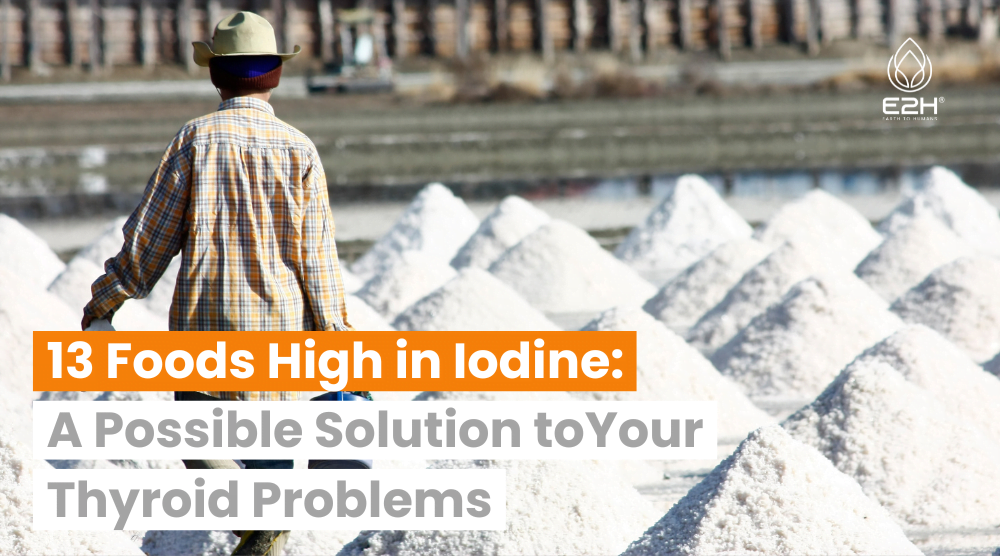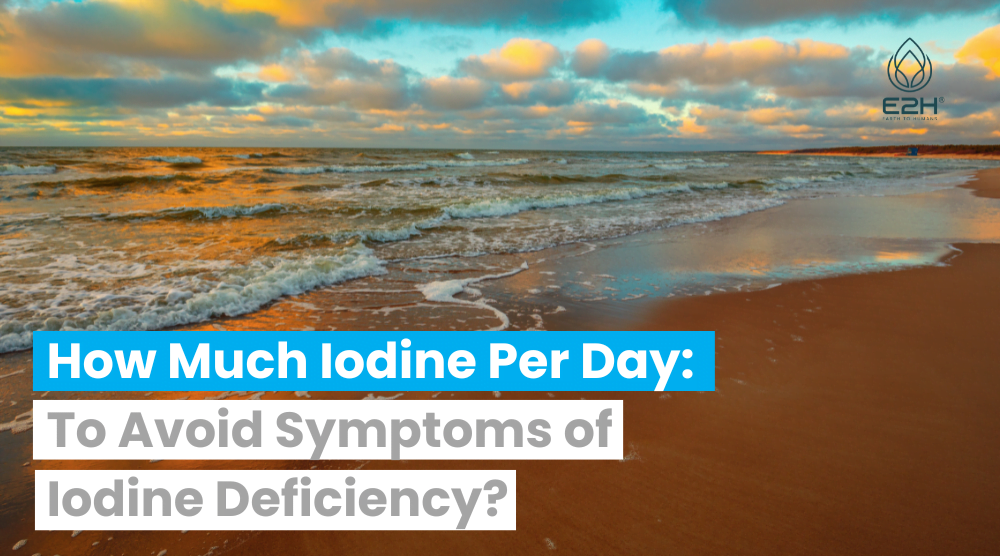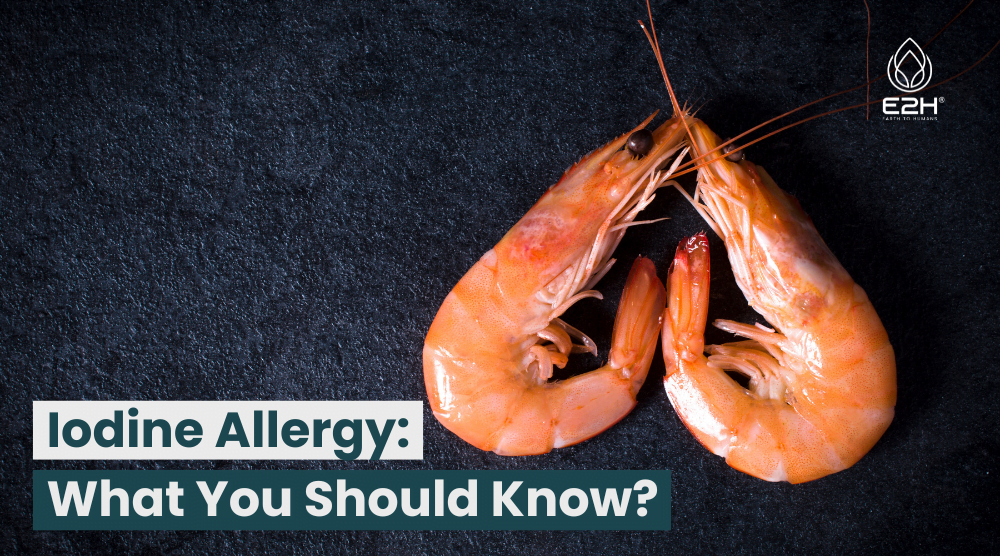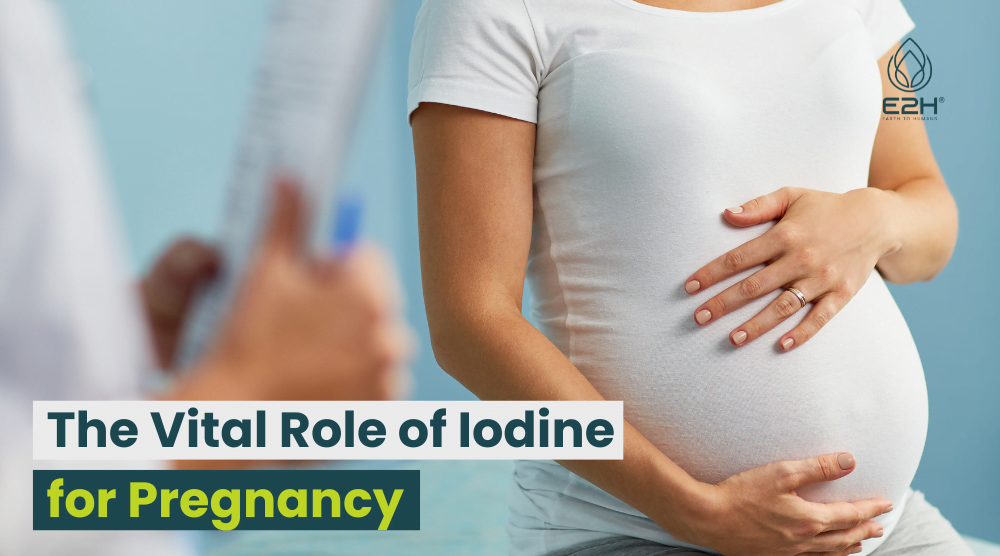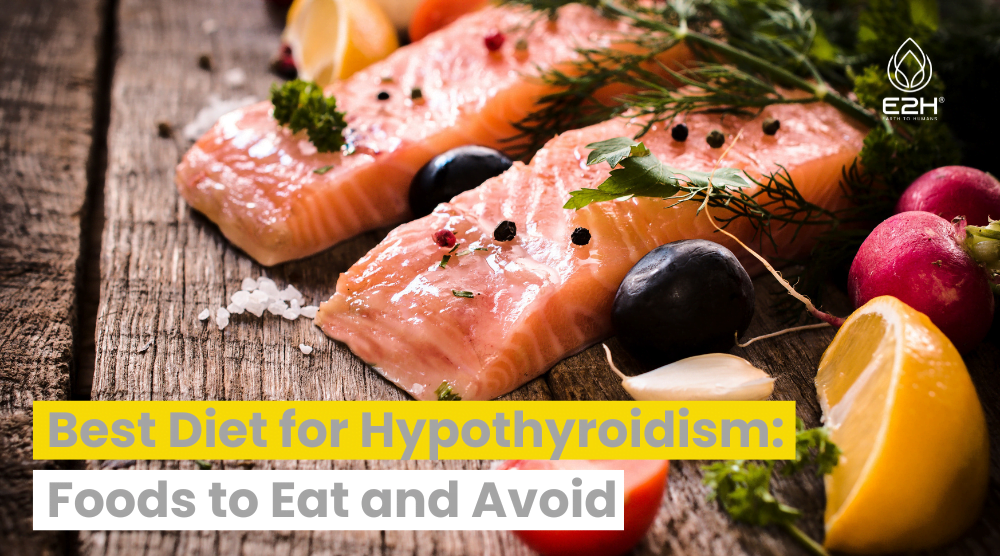Discover iodine-rich foods like seaweed, fish, dairy products, and eggs. Boost thyroid function and overall health with these nutritious options.
Some of the important iodine-rich foods include
- Seaweed, shrimp, and other seafood
- Fish like cod and tuna.
- Milk, yogurt, cheese, and eggs are dairy products that are excellent sources of iodine.[4]
Why Do You Need Iodine?
The thyroid hormones (thyroxine and triiodothyronine), which help produce proteins and enzyme function and control proper metabolism, are made from iodine.
The body also requires thyroid hormones for healthy bone and brain development throughout pregnancy and infancy [5]. Iodine is essential for other body processes as well.
Promotes Production of Thyroid Hormones
Iodine, present in various foods, is converted into thyroid hormones by the gland. The only cells in the body that can absorb iodine are thyroid cells.
As a result, your thyroid hormones (T3 and T4) are released into the bloodstream and circulate throughout the body to regulate metabolism (oxygen and calories are converted to energy) [6].
Prevent Hypothyroidism
Low thyroid levels due to iodine deficiency can cause developmental problems in newborns and even the baby’s death. Iodine is the most effective hypothyroidism supplement. Iodine supplements can help prevent immunity-related health conditions and may lessen hypothyroidism symptoms [7].
In addition, the appropriate medical doses of iodine may temporarily reduce hyperthyroidism by preventing the release of hormones.
Prevents Goiter
The thyroid gland requires iodine. In the absence of adequate iodine intake, the gland cannot synthesize the required concentrations of thyroid hormones in the blood. The result of this is an increased production of TSH from the brain. Under such circumstances, TSH causes abnormal gland enlargement, an anomaly recognized as the term goiter.
Therefore, the only way to prevent this is by adding enough iodine to your diet, and what can be a better source of iodine than iodized salt? So, don’t forget to add iodized salt to your daily cuisines.
Promotes Brain Development
Iodine is a micronutrient that must be included in human diets. Iodine is a mediator of thyroid hormone’s effects on the development of the brain since it is a crucial component of this hormone. The most common and curable cause of mental disability worldwide is iodine deficiency.
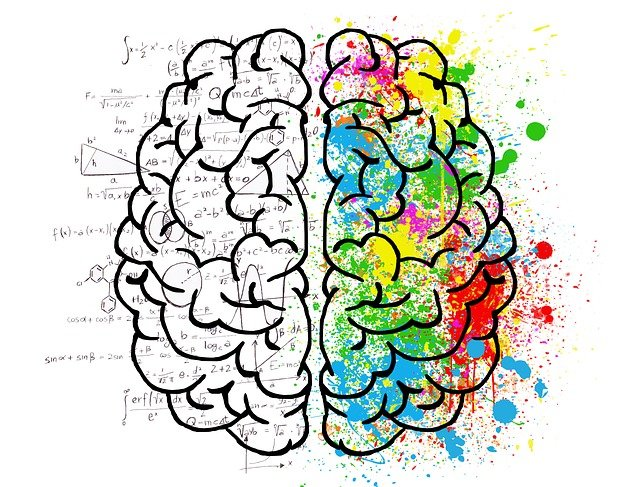
Iodine deficiency can cause serious head development problems[8]. Because the brain still requires iodine for growth during the first two years of life, young children are especially in danger. In addition, hypothyroidism and problems with physical and mental development in children are caused by iodine shortage.
Reduces Risk of Birth Defects
Iodine is necessary for producing thyroxine (THs), which is crucial for developing the fetus’ growth and maturation and its brain. To avoid having children with congenital disabilities, iodine consumption and TH levels must be sufficient.
An increased incidence of miscarriage and infant death are two primary and permanent harmful results of severe iodine deficiency throughout pregnancy and for the newborn.
Top 13 Iodine-rich foods
A mineral called iodine is present in various meals. Iodine is mainly contained in meals with animal protein and marine vegetables, with fortified foods like bread, cereals, and milk coming in at a distant second. [9] [10] [11]
The top 13 foods that are high in iodine and assist in regulating iodine levels in the body are listed below.
Dairy Products
Dairy products are foods high in iodine. However, based on the iodine content of the cow diet and the application of iodine-containing disinfectants during milking, the quantity of iodine in milk and cheese varies significantly.
A thorough investigation determined that a cup of milk can supply 59–112% of the daily recommended intake of iodine. Another excellent dairy food source of iodine is yogurt. A cup of plain yogurt has about half the daily recommended serving size [6], [12]
Based on the type of cheese, iodine content varies. One of the finest sources of iodine is cottage cheese. 65 mcg of iodine in one cup of cottage cheese, whereas 12 mcg of iodine is present in one ounce of cheddar cheese.
Iodized Salt
The US started adding iodine to table salt in the early 1920s to help prevent goiters or enlargement of the gland, which makes it iodized salt.
The iodine in 1/4 teaspoon of iodized salt is around 71 mcg or 47% of the daily required allowance. But sodium is also present in salt.
Iodine consumption has dropped in the US during the previous few decades. This is probably because major health organizations urge people to consume less salt daily to avoid or cure high blood pressure.
However, only roughly 25% of the population, or those who are salt-sensitive, appear to be affected by salt’s tendency to elevate blood pressure.
So iodized salt is a vital iodine source. In addition, having iodized salt in your diet can prevent iodine deficiency.
Also, Incorporating other Foods High in Iodine in your diet can prevent iodine deficiency.
Oysters
Oysters are a fantastic source of iodine in seafood. Oysters aid in thyroid and immune system regulation. The zinc and copper found in oysters aid the formation of the important protein collagen and the thyroid’s function.
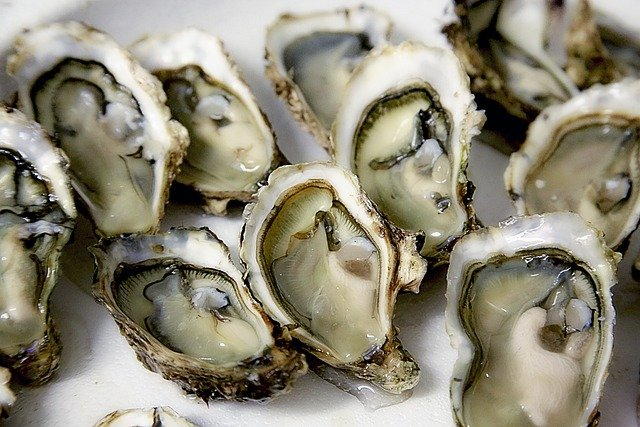
Three ounces of cooked oysters have up to 93 mcg of iodine, which is about two-thirds of your daily need [12].
Organ Meat
Interestingly, organ meats contain a lot of iodine per meal. You can benefit from additional vitamins and minerals in incredibly concentrated amounts if you eat organ meats. 32 mcg of iodine are present in 2.5 ounces of organ meat.
One organ meat that is both iodine-rich and extremely healthy is beef liver. 14 micrograms of iodine are present in a 3-ounce serving of beef liver [8]
Shrimps
Shrimp is a shellfish that is high in protein, low in calories, and a great provider of iodine. Shrimp also contains essential elements, including phosphorus, selenium, and vitamin B12.
Due to their ability to absorb part of the iodine naturally present in saltwater, shrimp and other shellfish are excellent sources of iodine. About 35 mcg, or 23% of the required daily intake, of iodine may be found in three ounces of shrimp.
Tuna
Tuna is one of the [Foods High in Iodine], providing a low-calorie, high-protein, and iodine-rich meal. Additionally, it is a great source of potassium, iron, and B vitamins, as well as omega-3 fatty acids that may reduce the risk of heart disease.
Three ounces of tuna provide around 11% or 17 mcg of the daily required amount of iodine.
Farm Raised Salmon
You can get up to 21% of the iodine you need each day from a single salmon fillet. Like other seafood, salmon is a fantastic provider of iodine.
Making it a consistent component of your diet and using it sparingly can assist in maintaining your thyroid’s health. It is an iodine-rich food.
Cod
Cod is a white fish with a moderate taste and delicate texture and is one of the foods high in Iodine. It contains many nutrients and minerals, including iodine, yet is relatively low in calories and fat.
Three ounces (85 grams) of cod has 42-66% of the required daily intake at 63-99 mcg.
Cod’s iodine can vary depending on whether it was farm-raised or captured in the wild, as well as the area in which it was caught.
Prunes
Prunes, which are plums that have been dried, are an excellent option for vegetarians and vegans who are looking for foods high in Iodine. Five dried prunes contain 13 mcg of iodine, which is 9% of the recommended daily allowance.
In addition to promoting digestion, prunes are rich in potassium, iron, and other vital nutrients such as retinol (vitamin A).
Eggs
In addition to the previous foods, iodine can also be found in eggs, making them one of the foods high in Iodine.
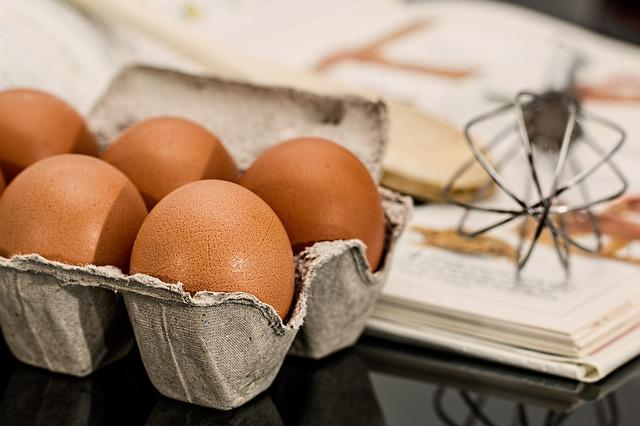
One entire egg offers a lean amount of protein, healthy fats, and a variety of vitamins and minerals for less than 100 calories. But most minerals, including iodine, are found in the yolk. Iodine is a mineral added to chicken feed, making egg yolks a good source of iodine. But because the quantity of iodine in chicken feed can change, so can the amount in eggs. One large egg typically contains 24 mcg of iodine, 16% of the recommended daily amount.
Lima Beans
Lima beans are a heart-healthy option since they are an excellent source of fiber, magnesium, and folate.
They also provide a respectable amount of iodine for vegetarians and vegans. The quantity of iodine in fruits and vegetables might vary due to variations in soil, irrigation water, and fertilizers.
However, one cup of cooked lima beans typically has 16 mcg, or 10% of the recommended requirement, of iodine.
Strawberries
Iodine is only found in a few fruits. Due to their low calorie and mineral content, strawberries—one of the few fruits containing iodine—can be on the list of healthy foods. Each day, 6-7 strawberries provide 8% of the recommended iodine consumption. Because of this, strawberries are the ideal iodine-boosting healthy snack.
Banana
Iodine is found in bananas. Calculating how much you can eat while staying within your daily nutrient limit is crucial. The iodine content in one medium size banana is around 2% of the daily requirement. Bananas contain nearly enough iodine for your body.
How Much Iodine Does Your Body Need?
By consuming a varied and balanced diet, most individuals should be able to get all the iodine they require. Your age determines how much iodine you require daily. Below is a list of typical daily suggested dosages in micrograms (mcg).
A daily need of 150 micrograms (mcg) for adults. Children aged 9 to 13 should take in roughly 120 mcg daily. Compared to regular adults, pregnant women require approximately 50% extra iodine.
Therefore, maintaining iodine supplementation is a good idea. Infants consume this mineral through breast milk, infant formula, and meals after they begin eating solids.
From 7 to 12 months, infants require 130 mcg per day instead of 110 mcg up until six months. Then, the advised levels decrease to 90 through 8 years of age.
To ensure your infant receives how much iodine they require while you are nursing, doctors recommend consuming around 290 mcg of iodine daily.
What Happens if I Don’t Have enough iodine?
Iodine deficiency prevents the body from producing adequate thyroxine. Many issues may result from this. [4], [13]
Neck Swelling
Swelling in the front of the neck ( most likely goiter) is a typical sign of an iodine shortage. This is because the thyroid gland works harder to produce more iodine as blood levels of TSH rise.
As a result, the cells expand and proliferate, resulting in a goiter. It happens when you are iodine deficient, and your thyroid gland is forced to produce thyroxine.
Fatigue and Low Body Temperature
You can feel exhausted, lethargic, and weak due to low iodine levels. This is because the mineral is required by your body to produce energy. Another typical sign of an iodine deficit is fatigue and a decrease in body temperature.
In fact, according to some research, approximately 80% of patients with low thyroxine levels, which are brought on by iodine deficiency, experience fatigue, sluggishness, and illness.
Weight Gain
Low iodine levels can impede metabolism and promote fat storage instead of energy-burning digestion.
In addition, your body burns fewer calories when at rest when your thyroid hormone levels are low. Sadly, this indicates that more calories you consume are stored as fat.
Changes in Heart Rate
Iodine shortage can cause your heart rate to decrease, which can make you feel weak, worn out, lightheaded, and fainting prone. In addition, your iodine levels may have an impact on your heartbeat. If you have too little or too much of this mineral, your heart may beat more slowly than usual or quickly.
Irregular Periods
The menstrual cycle hormone signals are interfered with by decreased thyroid hormone levels. According to one study, compared to just 12% of healthy women, 68% of women with low thyroid hormone levels had irregular menstrual periods.
Additionally, studies have shown that women with low thyroid hormone levels had heavier and more frequent menstrual periods.
Problems During Pregnancy
Iodine shortage can have serious adverse effects, particularly for infants, such as slow growth and delayed neural development. Additionally, a severe iodine deficit might lead to a higher chance of stillbirth.

Can Iodine Supplements Cause Toxicity?
You must be wondering how much is too much iodine. Iodine supplements, if taken in excessive quantity, can lead to toxicity. Conversely, excessive iodine intake and unnecessary supplement use can also cause harmful effects—more than enough iodine results in toxicity.
Iodine intake above 1.1 mg daily may prove very harmful and even life-threatening. Patients with certain risks, such as those with pre-existing thyroid disease, the elderly, fetuses, and newborns, might develop a condition causing thyroid disease, including gland failure due to iodine overload.
Therefore, the limit of dietary iodine supplements should be taken care of. Do not consume too much iodine.
The Bottom Line: Which is The Best Source of Iodine?
It’s understandable why some individuals need clarification about the best source of iodine.
Even though a wide variety of foods contain iodine, it is still not enough to fulfill your daily dietary requirement, especially in pregnant women and nursing mothers.
In such cases, experts recommend taking liquid iodine supplements, which are best absorbed through the gut and allow you to get the most out of these supplements.
Note: Always select an authentic organization for buying liquid iodine supplements.
FAQs
What are some good food sources of iodine?
Some foods that are high in iodine include seaweed, fish (such as cod and tuna), dairy products (such as milk and cheese), and eggs.
How much iodine should I consume daily?
The recommended daily intake of iodine varies depending on age and life stage. For adults, the recommended daily intake is about 150 micrograms (mcg). Pregnant and breastfeeding women may require higher amounts.
Are there any vegetarian or vegan-friendly sources of iodine?
Yes, there are vegetarian and vegan options for iodine. Seaweed, including nori and kelp, is a great source. Additionally, iodized salt and fortified plant-based milk or yogurt can provide iodine for those following a plant-based diet.
What happens if I don’t consume enough iodine?
Inadequate iodine intake can lead to iodine deficiency, which can cause thyroid problems, including goiter (enlargement of the thyroid gland) and hypothyroidism. It’s important to include iodine-rich foods in your diet to prevent such deficiencies.
Concusion
Incorporating iodine-rich foods into your diet is essential for maintaining optimal thyroid function and overall health. Foods such as seaweed, fish, dairy products, and eggs are excellent sources of iodine and should be included in a balanced meal plan.
References:
1. De la Vieja A, Santisteban P. Role of iodide metabolism in physiology and cancer. Endocr Relat Cancer. 2018 Apr;25(4): R225-R245.
2. Pearce EN, Lazarus JH, Moreno-Reyes R, Zimmermann MB. Consequences of iodine deficiency and excess in pregnant women: an overview of current knowns and unknowns. Am J Clin Nutr. 2016 Sep;104 Suppl 3:918S-23S.
3. Abdelrahman A, Salih LMA, Saeed E. Knowledge, attitude, and practice of iodized salt use in Al-Riyadh and Al-Ozozab areas, Khartoum, Sudan. Sudan J Paediatr. 2020;20(1):26-33.
4. Koukkou EG, Roupas ND, Markou KB. Effect of excess iodine intake on thyroid on human health. Minerva Med. 2017 Apr;108(2):136-146.
5. Bulloch MN. Acute iodine toxicity from suspected oral methamphetamine ingestion. Clin Med Insights Case Rep. 2014; 7:127-9.
6. Trumbo P, Yates AA, Schlicker S, Poos M. Dietary reference intakes: vitamin A, vitamin K, arsenic, boron, chromium, copper, iodine, iron, manganese, molybdenum, nickel, silicon, vanadium, and zinc. J Am Diet Assoc. 2001 Mar;101(3):294-301.
7. Ershow AG, Skeaff SA, Merkel JM, Pehrsson PR. Development of Databases on Iodine in Foods and Dietary Supplements. Nutrients. 2018 Jan 17;10(1)
8. Larsen LC, Cummings DM. Oral poisonings: guidelines for initial evaluation and treatment. Am Fam Physician. 1998 Jan 01;57(1):85-92.
9. Nettore IC, Colao A, Macchia PE. Nutritional and Environmental Factors in Thyroid Carcinogenesis. Int J Environ Res Public Health. 2018 Aug 13;15(8)
10. Gummi DD, Mowry JB, Spyker DA, Brooks DE, Beuhler MC, Rivers LJ, Hashem HA, Ryan ML. 2018 Annual Report of the American Association of Poison Control Centers’ National Poison Data System (NPDS): 36th Annual Report. Clin Toxicol (Phila). 2019 Dec;57(12):1220-1413.
11. Zimmermann MB, Galetti V. Iodine intake as a risk factor for thyroid cancer: a comprehensive review of animal and human studies. Thyroid Res. 2015; 8:8.
12. Pennington JA. A review of iodine toxicity reports. J Am Diet Assoc. 1990 Nov;90(11):1571-81.
13. Airshow AG, Goodman G, Coates PM, Swanson CA. Assessing iodine intake, iodine status, and the effects of maternal iodine supplementation: introduction to articles arising from 3 workshops held by the NIH Office of Dietary Supplements. Am J Clin Nutr. 2016 Sep;104 Suppl 3:859S-63S.
